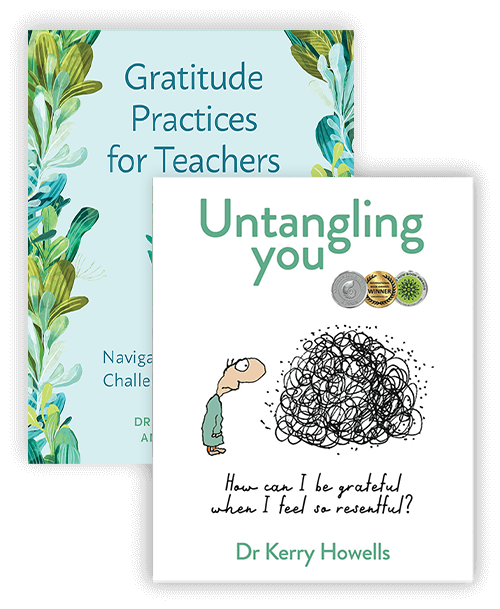Warm and heartfelt greetings!
As the year’s end is unfolding, I would like to take this opportunity to explore how we can reflect on 2020 through the lens of gratitude. How can gratitude help us in this year that will be known for all time as the great disrupter; for so many the great disrupter of their peace, to life as they knew it? I want to acknowledge from the start that gratitude maybe just too inaccessible or feel inappropriate right now, especially for those of you who have lost loved ones. If this is the case, you may need to put this blog aside for now.
In many ways, gratitude comes into its own as a response to the greater sense of community, to the wonderful surge of people assisting each other – things that we have been made more acutely aware of this year. Indeed, gratitude has come out of hiding, out of the closet where it may have been considered too religious, too new age, too embedded with a sense of indebtedness. We have seen it everywhere in public outpourings of gratitude to our health workers, teachers, to people who provide services and stack shelves, and to many others.
It has also been a time where we have been forced to reflect on what we have taken for granted in the past – our jobs, our way of life, our material prosperity. When regret awakens us to what we have taken for granted, I feel that gratitude is the most appropriate response for moving forward. We can express gratitude for all that we still have and resolve to never take things for granted again.
The pandemic has both brought us to our knees and asked us to think differently about the way we go about things. There might be, or perhaps needs to be, a sense of urgency about the need to reflect on the lessons learned. The approaching holidays could be a perfect time for this. We can stop and ask ourselves, what have I learned from 2020? How can I change? How can I welcome and acknowledge the change I see in others and express my gratitude for the inspiration this gives me?
Those of you who participated in the 30-day Gratitude Practice with me earlier this year will be familiar with the reasons why gratitude is important in times of adversity. I have provided a link to this list as you might want to identify or remember the reasons that resonate with you.
I would like to highlight some of these practices to explore why gratitude is important to the reflective process, particularly when we are experiencing difficulties.
One of the roles of gratitude is to remind us that we actually have a choice in the perspective we take on what is happening in our lives. Just hearing the word ‘gratitude’ can itself awaken this choice within us. If we can think, “oh, that’s right, I’m forgetting gratitude” then in that moment we are bringing to mind an awareness of what we have taken for granted and an acknowledgement of how blessed we actually are. Gratitude is calling upon us to remember that we have a choice in how we respond. As the sociologist Georg Simel says, “gratitude is the moral memory of humankind”.
When we remember that we can choose gratitude, this helps us to move away from blaming others for our predicament. We are then able to feel more empowered to reflect on what we can change in ourselves first, rather than waiting for someone else to change.
As I explored in my TEDx talk, thanking awakens our thinking. When we are grateful while we are reflecting (even for the capacity to think, to learn, to use our brains, to write, to see) we have greater clarity and inspiration. Gratitude can awaken a sense of abundance, beauty and goodness. A consistent theme amongst my research participants is that gratitude helps them feel calmer. When we are calm, we are able to be more accepting, and see our challenges in a different light. What can they teach us?
Gratitude gives us resilience so that we aren’t so consumed by the pain of all the disruption. It helps us to cope better and to rise above it in some way. Gratitude helps us feel well, and when we are well, we are able to reflect more easily because we have more internal peace. Recent developments in consciousness research and cognitive neuroscience have led to thousands of clinical studies demonstrating that gratitude greatly enhances our physical, mental, social and spiritual wellbeing. For example, with regard to psychological health, several studies have shown that having a grateful disposition offers some protection against stress, trauma, depression and anxiety. Studies have also shown that gratitude leads to more refreshing sleep, improved heart health and a stronger immune system, as well as a lessening of the intensity of other physical symptoms. Gratitude improves mood, lowers fatigue, and may protect against burnout.
Even though 2020 has been extremely painful and hard, if we can learn something positive from it and be grateful for what we have learned, this can give us a kind of healing balm so that we are able to move on more easily. This can be difficult to do when we are actually going through the hardship, and, as I said at the beginning, indeed it can feel inaccessible or inappropriate, particularly when we are experiencing a whole array of emotions that are anything but gratitude. It’s important to acknowledge these as they are part of the lesson, part of the process. However, when we are ready and able to objectively reflect on what we have learned, gratitude plays its most important role.
And the best way to express gratitude? To change: to actually practise the lessons we have learned and make them a part of our character. At the end of the day, or in this case, at the end of the year, such growth is our greatest treasure.
I wish you all the best for a peaceful and restorative break,
Much gratitude
Kerry






